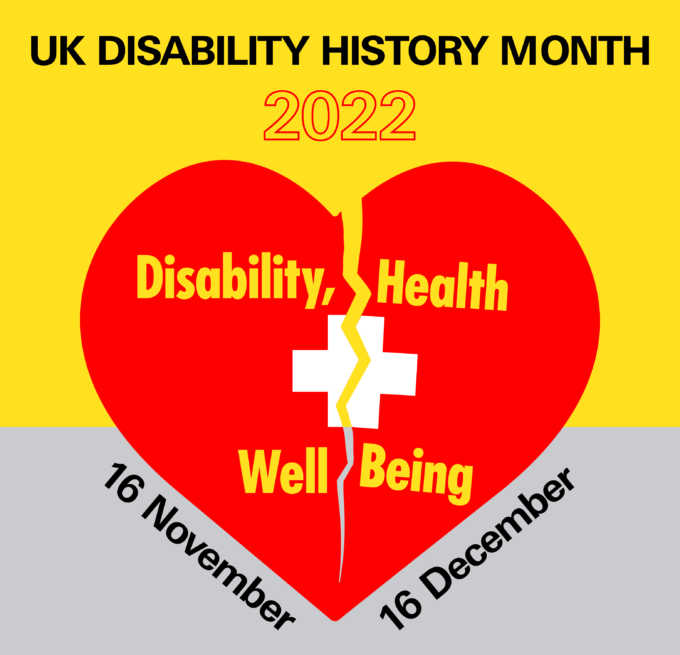In our latest blog to mark UK Disability History Month Equality, Diversity & Inclusion Consultant Adam Perry explores this years theme ‘Disability, Health and Well Being’. Adam reflects on his own lived experiences of wellness as a person living with invisible disabilities.
Events to mark Disability History Month and explore this years theme further are taking place across King’s and you can find out about these here.

The concept of wellness is interesting and what that means to people seems incredibly variable. When I think of wellness, I think of mental and emotional wellness. Which can be much harder to have agency over, particularly when wellbeing is inextricably linked to culture, attitudes and perceptions.
This leads me to reflect on my own experiences of wellness, as someone with invisible disabilities. From my experience, with invisible disabilities it can be incredibly difficult to get people to listen, let alone adapt. It can feel like listening and making adjustments is considered optional/nice to have. Maybe this is because if a condition isn’t visible, people can distance themselves because they aren’t confronted by the impacts?
I have Asperger’s syndrome, a form of Autism. Many people have heard of Autism, but if honest, people likely have limited awareness which is influenced by stereotypes. This is reflected in a YouGov poll commissioned by Autistica, which found that across the UK there is a real lack of understanding surrounding Autism. This means that in practice, people tend to not consider that presentation and experiences of the condition can differ greatly between individuals. I manage my condition well. I have strong relationships, strong interpersonal skills, am deeply empathetic and navigate nuanced and unclear situations regularly. As a result, it can be unclear to people why I may be asking for adjustments because the challenges I face do not impact the other person.
To truly include a person with Autism, one needs to be open to listening, be prepared to view people holistically and be prepared to make changes to the status quo or preferred ways of doing things. This may mean embracing the fact that the person experiences challenges which are not personally tangible because of one’s own experiences of the world. People can struggle with this, perhaps feeling a little resentful that they need to change their approach, rather than the person with Autism. The irony is, that Autistic people change their approach to fit in, every day. I think the misconception surrounding Autism being a learning disability (which it is not) has a role to play here. It can be easy to view the person as deficient in some way or characterise them as inflexible… which I have certainly experienced. Yet the reality is that looking through the lens of the Social Model of Disability, people are disabled by barriers in society, not their impairments. Autistic people are not asking for people to share the same view of the world, rather, to try to understand their view of the world.
Having to battle to be listened to and heard, to be considered and supported is hard. To regularly monitor that hard fought adjustments are consistently applied is challenging. To do this, whilst trying to manage other people’s comfort and perception of you and your ability/credibility is exhausting and erodes wellbeing. Whilst this is based on my lived experience, I can confidently say that it is not an isolated experience. One only needs to look at the fact that The Autistica Employment Plan highlights that only 2 in 10 Autistic people have a job to see that there is a systemic issue here, and one which needs action.
The good news takeaway? You can positively impact individual experiences and shift culture by taking simple steps such as:
- Truly and empathetically listening to who have invisible disabilities
- Committing to advancing your own learning
- Avoiding making assumptions about people’s abilities, instead consider creating psychologically safe spaces to have honest dialogue
- Being proactive in ensuring that support is put in place and consistently applied
Want to Learn more about Equality, Diversity & Inclusion at King’s College London?
- Found out more by visiting our Equality, Diversity & Inclusion at King’s pages.
- Follow us on Twitter.
- Email the team at diversity@kcl.ac.uk